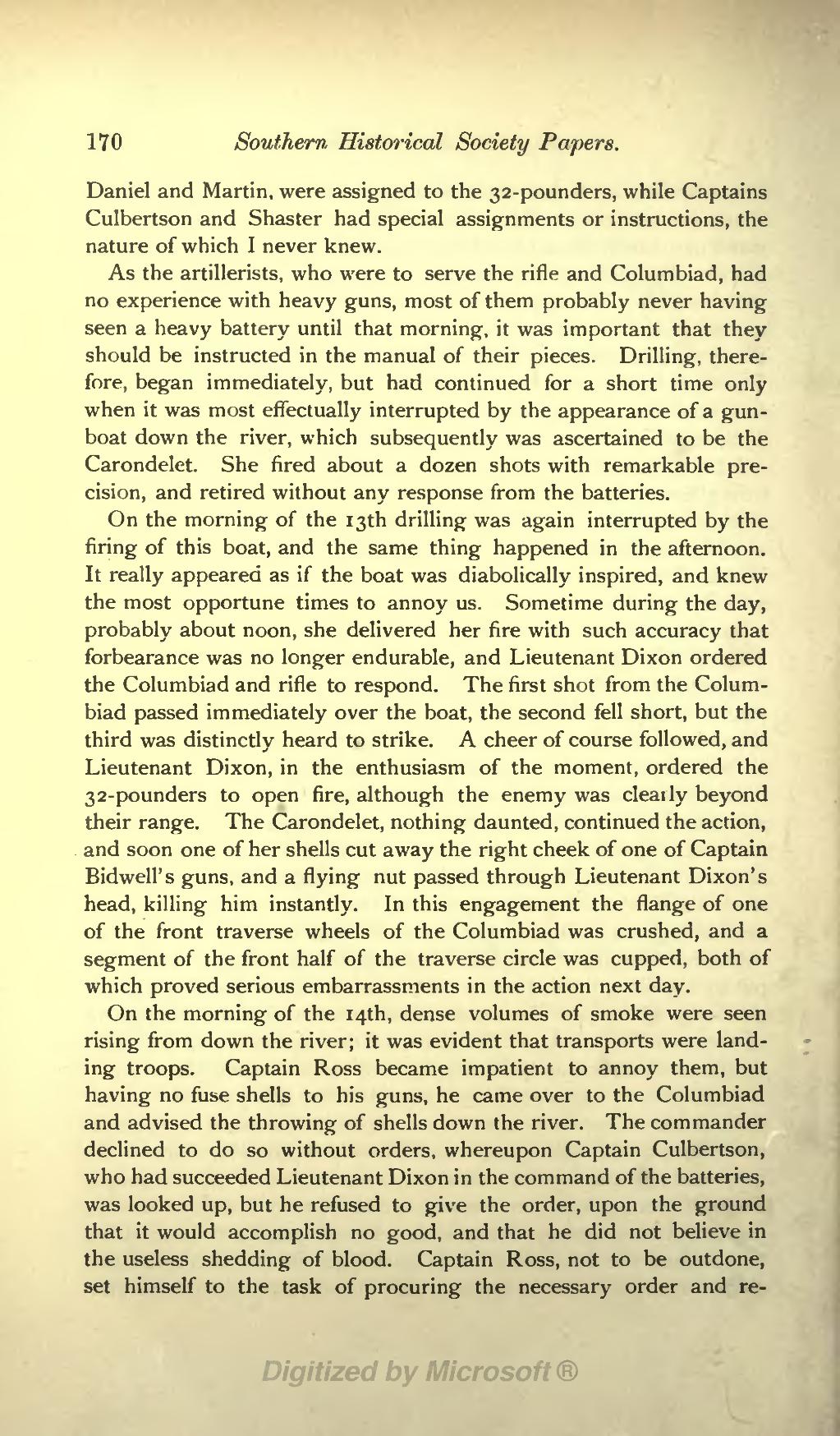170 Southern Historical Society Papers.
Daniel and Martin, were assigned to the 32-pounders, while Captains Culbertson and Shaster had special assignments or instructions, the nature of which I never knew.
As the artillerists, who were to serve the rifle and Columbiad, had no experience with heavy guns, most of them probably never having seen a heavy battery until that morning, it was important that they should be instructed in the manual of their pieces. Drilling, there- fore, began immediately, but had continued for a short time only when it was most effectually interrupted by the appearance of a gun- boat down the river, which subsequently was ascertained to be the Carondelet. She fired about a dozen shots with remarkable pre- cision, and retired without any response from the batteries.
On the morning of the I3th drilling was again interrupted by the firing of this boat, and the same thing happened in the afternoon. It really appeared as if the boat was diabolically inspired, and knew the most opportune times to annoy us. Sometime during the day, probably about noon, she delivered her fire with such accuracy that forbearance was no longer endurable, and Lieutenant Dixon ordered the Columbiad and rifle to respond. The first shot from the Colum- biad passed immediately over the boat, the second fell short, but the third was distinctly heard to strike. A cheer of course followed, and Lieutenant Dixon, in the enthusiasm of the moment, ordered the 32-pounders to open fire, although the enemy was clearly beyond their range. The Carondelet, nothing daunted, continued the action, and soon one of her shells cut away the right cheek of one of Captain Bidwell's guns, and a flying nut passed through Lieutenant Dixon' s head, killing him instantly. In this engagement the flange of one of the front traverse wheels of the Columbiad was crushed, and a segment of the front half of the traverse circle was cupped, both of which proved serious embarrassments in the action next day.
On the morning of the i4th, dense volumes of smoke were seen rising from down the river; it was evident that transports were land- ing troops. Captain Ross became impatient to annoy them, but having no fuse shells to his guns, he came over to the Columbiad and advised the throwing of shells down the river. The commander declined to do so without orders, whereupon Captain Culbertson, who had succeeded Lieutenant Dixon in the command of the batteries, was looked up, but he refused to give the order, upon the ground that it would accomplish no good, and that he did not believe in the useless shedding of blood. Captain Ross, not to be outdone, set himself to the task of procuring the necessary order and re-
